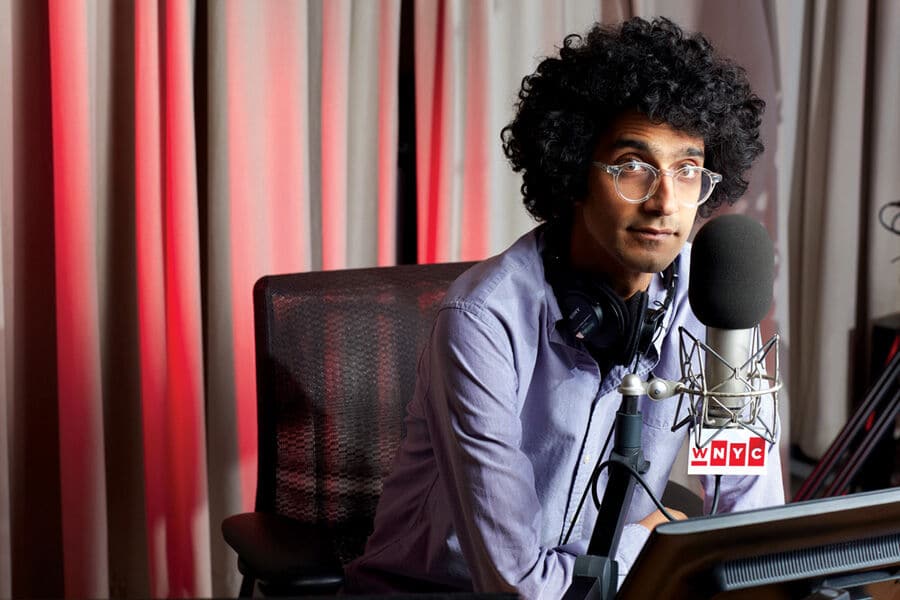“Connected: The Hidden Science of Everything” (Netflix): If you are familiar with the voice of Latif Nasser from the WNYC show (and podcast) Radiolab, then you might also be familiar with how his exceptional brain works. Now you get to see him, not just hear him and, depending on your reaction to his persona—grown-up nerd, goofy-appearing, childish wonder, obviously brilliant but not quite socially comfortable—you will or will not find this six-parter fascinating. If he’s a turn-off, I advise you to stick around anyway; you will learn a whole bunch of things you didn’t know you needed to learn about nature, how the world works and how the mind adapts. For example, in episode one, we see how the smallest sound of a rare bird can connect ultimately to the downright creepy way our lives are monitored by constant surveillance. All of the episodes start out small and expand to the profound, utilizing odd bits of trivia, science and history, following Nasser as he makes trips to far-off places, with charts and graphs presented like cartoons, and the questions he poses to experts that throw them off-balance. Admit it, you’re intrigued, right? You won’t be sorry you tuned in.
“Robin’s Wish” (Available now on VOD and Digital): After Robin Williams’ death in 2014, the social media buzz was filled with rumors of deep depression, drug overdose, suicide while high and so on. We were in mourning—this amazing talent whose brain was too fast to be measured and which came up with outrageous stream-of-consciousness monologues and inspired acting performances was gone forever from our lives. This documentary is a touching and heart-breaking exploration of the actual reason for his death. As his widow, Susan Schneider Williams, says, “During the last year of his life, Robin was confronted with anxiety, paranoia, insomnia, scary altered realities and a roller coaster of hope and despair. With our medical team’s care we chased a relentless parade of symptoms but with very little gain. It wasn’t until after Robin’s passing, in autopsy, that the source of his terror was revealed: he had diffuse Lewy body disease. It was one of the worst cases medical professionals had seen.”
In Lewy body dementia, thousands of neurons that control so much of our brain activity break down, causing anxiety, amnesia, paranoia, exhaustion, sleeplessness, hallucinations and, ultimately, death. He died because his brain was destroyed. The film is made with loving care, showing nuggets from Robin’s work over the years and a series of talking heads—close friends who knew him well and were anguished over his state of mind. The film is directed by Tyler Norwood, who co-wrote it with Scott Fitzloff. Why did they make the film? To honor his legacy and to offer information. Here, again, is Susan: “We had been discussing what we wanted our legacies to be in life; when it was our time to go, how we wanted to have made people feel. Without missing a beat, Robin said, ‘I want to help people be less afraid.’”
“Foyle’s War” (Streaming on Acorn)
I have been reading about World War II quite a bit lately, because the current world situation has me seeking escape to what felt like a simpler (more honorable?) time. I remembered enjoying “Foyle’s War” when it was shown on PBS in the early 2000s. The background was England from the start of the war to the end, its cleverly crafted stories (by Anthony Horowitz) revolving around a small-town police detective (Michael Kitchen) who solves various mysteries ranging from vandalism to murder. Last week, I happily binge-watched the original series and then binge-watched some more episodes that came later on and involved Foyle’s involvement with the British intelligence service in the war’s aftermath. Kitchen is the charismatic glue, he carries every episode, an amazing and subtle actor. And yes, Great Britain did have a code of conduct that was based on honor (honour), even as the entire system was breaking down, the end result of horrific devastation.

